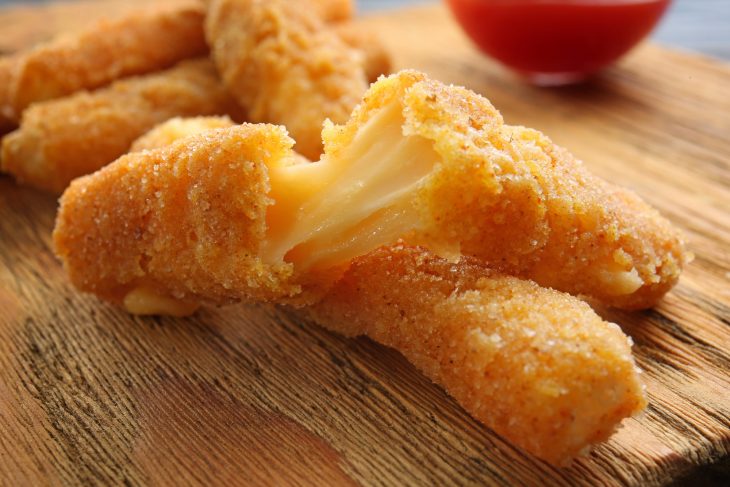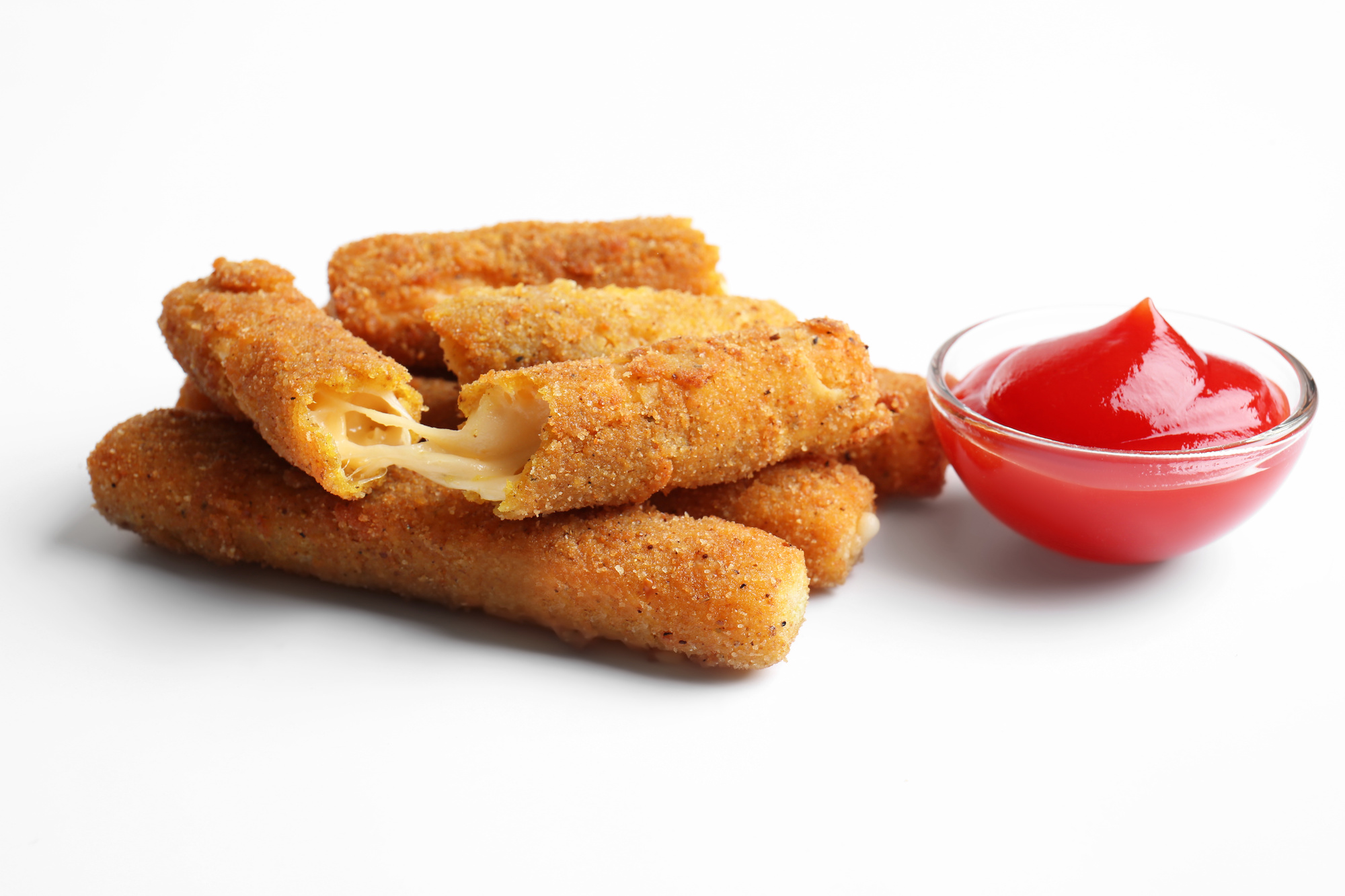
Cheese sticks are a beloved snack enjoyed by people of all ages. These delectable treats are not only tasty but also offer a range of nutritional benefits. In this article, we will explore 20 cheese stick nutrition facts that highlight the goodness these snacks bring to the table. From protein content to essential vitamins and minerals, you’ll discover why cheese sticks are a fantastic addition to your diet.
Calories
Cheese sticks are relatively low in calories, making them a guilt-free snack option. On average, one cheese stick contains approximately 80 to 100 calories, depending on the brand and variety.
Protein
Protein is an essential nutrient for building and repairing tissues in the body. Cheese sticks are a good source of protein, with each stick containing about 5 to 8 grams. Adding protein-rich snacks like cheese sticks to your diet can help you meet your daily protein requirements.
Calcium
Calcium plays a crucial role in maintaining strong and healthy bones. Cheese sticks are a rich source of calcium, with each stick providing approximately 15% of the recommended daily intake. Including cheese sticks in your diet can contribute to improving bone density and preventing conditions like osteoporosis.
Vitamin A
Cheese sticks also contain vitamin A, which is essential for good vision, a healthy immune system, and proper cell growth. Each cheese stick provides about 6% of the recommended daily intake of vitamin A.
Vitamin B12
Vitamin B12 is necessary for the formation of red blood cells and proper nerve function. Cheese sticks are a good source of vitamin B12, with each stick providing approximately 8% of the recommended daily intake.
Sodium
While cheese sticks are packed with flavor, it’s important to be mindful of their sodium content. On average, a cheese stick contains about 150 to 200 milligrams of sodium. If you’re watching your sodium intake, it’s best to enjoy cheese sticks in moderation.
Fat Content
Cheese sticks are relatively low in fat, making them a healthier alternative to other snack options. Each stick typically contains around 5 to 8 grams of fat, depending on the brand and variety.
Cholesterol
Cheese sticks contain cholesterol, but the amount varies depending on the type of cheese used. On average, a cheese stick may have around 15 to 20 milligrams of cholesterol. It’s important to note that dietary cholesterol doesn’t have as significant an impact on blood cholesterol levels as previously believed.
Phosphorus
Phosphorus is an essential mineral that plays a vital role in bone and teeth health, as well as energy metabolism. Cheese sticks are a good source of phosphorus, with each stick providing approximately 15% of the recommended daily intake.
Vitamin D
Vitamin D is crucial for calcium absorption and bone health. Cheese sticks contain a small amount of vitamin D, which helps promote overall bone strength and wellness.

Zinc
Zinc is an important mineral that supports various bodily functions, including immune system health and wound healing. Each cheese stick offers a small amount of zinc, contributing to your daily requirements.
Riboflavin
Riboflavin, also known as vitamin B2, is necessary for energy production and maintaining healthy skin. Cheese sticks contain a small amount of riboflavin, contributing to your daily intake.
Vitamin K2
Cheese sticks contain vitamin K2, a nutrient that aids in blood clotting and supports bone health. Adding cheese sticks to your diet can provide a small but valuable amount of vitamin K2.
Iron
Iron is essential for carrying oxygen throughout the body and preventing iron deficiency anemia. While cheese sticks are not a significant source of iron, they do contain trace amounts that can contribute to your overall iron intake.
Magnesium
Magnesium is involved in numerous biochemical reactions in the body and plays a role in muscle and nerve function, as well as maintaining a steady heartbeat. Cheese sticks offer a small amount of magnesium, contributing to your daily requirements.
Potassium
Potassium is an essential mineral that helps maintain healthy blood pressure and heart function. While cheese sticks are not a significant source of potassium, they do contain trace amounts that can contribute to your overall potassium intake.
Zinc
Zinc is an important mineral that supports various bodily functions, including immune system health and wound healing. Each cheese stick offers a small amount of zinc, contributing to your daily requirements.
Copper
Copper is involved in the production of red blood cells and collagen, as well as supporting the immune system. Cheese sticks provide a small amount of copper, contributing to your overall copper intake.
Fiber
Cheese sticks are not a significant source of dietary fiber, but they can still contribute a small amount to your daily intake. Fiber is important for maintaining digestive health and promoting feelings of fullness.
Enjoyment!
Last but certainly not least, cheese sticks offer a delightful and satisfying snacking experience. With their creamy texture and savory taste, they are a treat for the taste buds. So go ahead and indulge in these tasty morsels while enjoying their nutritional benefits!
Conclusion
Cheese sticks are more than just a delicious snack; they also bring several nutritional benefits to the table. From protein and calcium to essential vitamins and minerals, these delightful treats can enhance your overall well-being. Remember to enjoy cheese sticks in moderation as part of a balanced diet.
Frequently Asked Questions (FAQs)
Are cheese sticks a good source of protein?
Yes, cheese sticks are a good source of protein, with each stick typically containing about 5 to 8 grams.
How many calories are there in a cheese stick?
On average, one cheese stick contains approximately 80 to 100 calories.
Can cheese sticks contribute to my daily calcium intake?
Absolutely! Cheese sticks are a rich source of calcium, with each stick providing around 15% of the recommended daily intake.
Are cheese sticks high in sodium?
Cheese sticks contain a moderate amount of sodium, with an average of 150 to 200 milligrams per stick.
Are there any vegetarian options for cheese sticks?
Yes, many brands offer vegetarian cheese sticks made from non-animal rennet. Always check the packaging or product description for details.
Was this page helpful?
Our commitment to delivering trustworthy and engaging content is at the heart of what we do. Each fact on our site is contributed by real users like you, bringing a wealth of diverse insights and information. To ensure the highest standards of accuracy and reliability, our dedicated editors meticulously review each submission. This process guarantees that the facts we share are not only fascinating but also credible. Trust in our commitment to quality and authenticity as you explore and learn with us.
